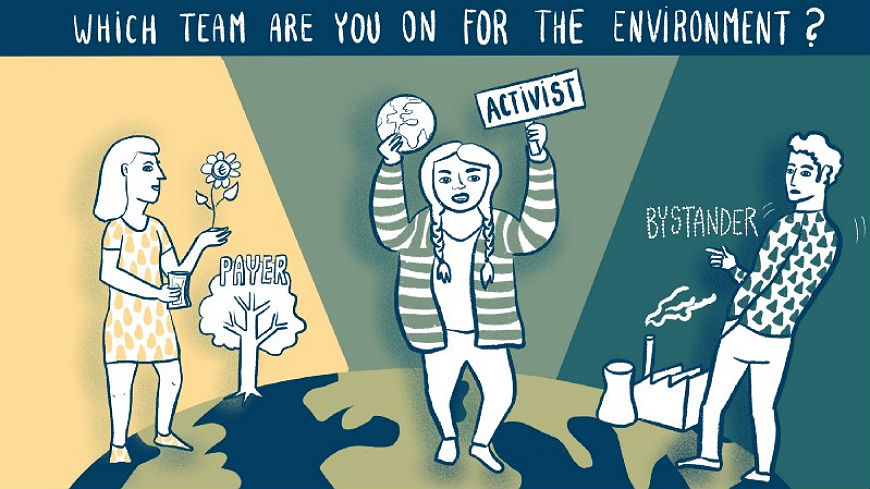What do I care for? Social Values of Young People Compared
A summary of the article by Magda Nico, Pool of European Youth Researchers, Centre for Research and Studies in Sociology, University Institute of Lisbon
 From “personality” back to “character”
From “personality” back to “character”
In this paper we wanted to analyse how young people feel about certain issues in their life in society, and how they see themselves as persons and as individuals that are concerned, indifferent, fascinated or outraged about certain contemporary features of society. We wanted to follow a relatively different approach than the one frequently and recently taken: more focused on the study and valorisation of agency, of (social and/or political) participation, of impact of collective action, on outcomes and results visible and measurable, on voices that are, or are to be, heard (as opposed to internal voices).
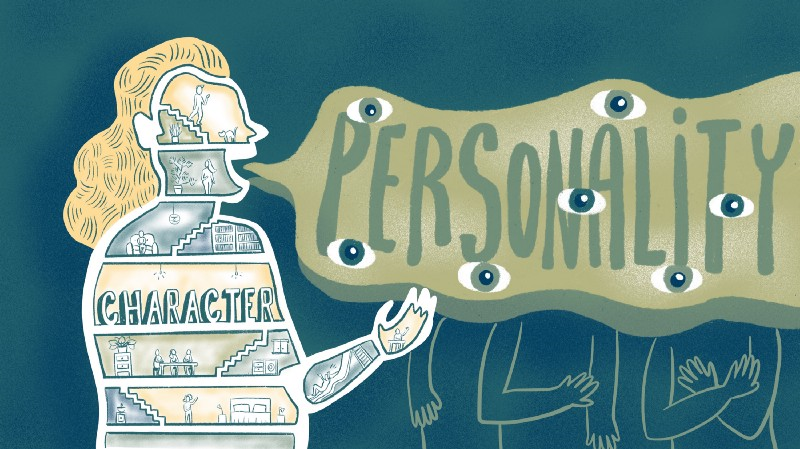
From personality to character. Image by Coline Robin
It’s perhaps necessary to come back to these ideas of social values and “character” (in a psychological sense) and leave “personality” to the secondary role. With or without agency, with or without participation, with or without being heard, social values exist. They are what ultimately shape the course of the world, led in its turn by the contemporary generations of young people.
Individuals act because they feel compelled to. Life is not a TED talk. It is not a performance.
This paper aims to be just a small contribution to the study of social values among young people, instead of the visibility these social values may or not have in terms of civic and political participation or social movements.
 Youth is an age effect
Youth is an age effect
This idea the “youth is an age effect” aims to remind ourselves that youth has consistently presented more democratic and progressive values than older groups of people, but this tendency seems to decline or reverse when the individuals reach an older age, to the extent of what is possible to infer from non-longitudinal data such as ESS and EVS. There is, in fact, a window of opportunity to mobilise loyalty, solidarity, equality, strong and consensual values towards human and social causes in the youth demographic period. With age, concerns and priorities change significantly, also because of the role more urgent, daily, and survival aspects take in life.
But youth is thus a period of life that is denser and richer in terms of progressive social values and it is urgent to act upon this. Not because young people are the future, but because young people can change it. Time is of the essence.
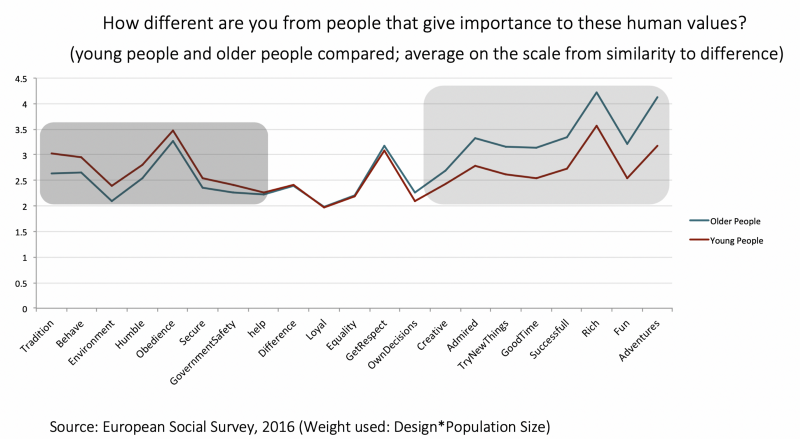
 Social values are socially conditioned
Social values are socially conditioned
Social conditions of existence are factors of social values. Whether people work, study and work, neither study nor work, or simply study does affect significantly the levels of importance they attribute to different social values. This means that the way of being is determined by the short- or long-term concerns one has experienced or is experiencing in life. And this means no youth policy or youth intervention should, if responsible, ignore or neglect young people’s social background and present.
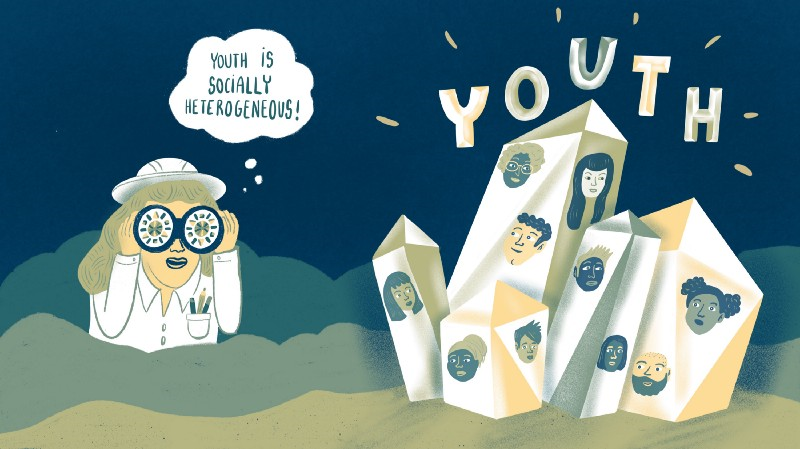
Social values are socially conditioned. Image by Coline Robin
Acknowledging this has a strong implication in the way policies are designed, to whom they are directed, and how they take into account that the heterogeneity among young people and between countries is at times more overwhelming than the objective social differences between young and older people.
 Social benefits benefit society
Social benefits benefit society
Although not highly optimistic, results show that the positive effects of social benefits (in people’s lives) gather relatively high agreement form most of the countries, more than the negative effects (on the economy) do. Young people thus seem to be oriented towards the governmental obligations to redistribute wealth on behalf of less unequal societies, through the attribution of social benefits.
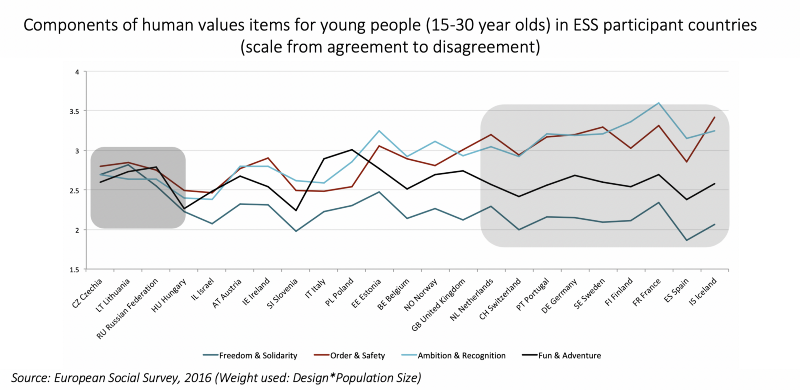
 “Life is life”, what’s age got to do with it?
“Life is life”, what’s age got to do with it?
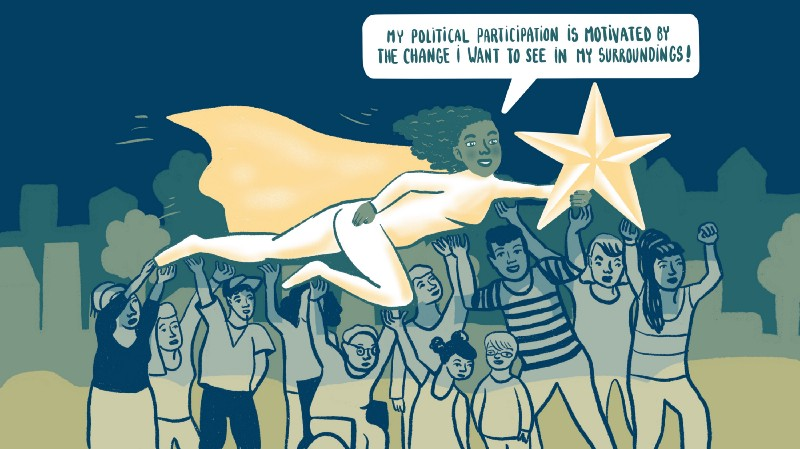
Life is life. Image by Coline Robin
Just like the song of the 1980s, results show that people from all ages give importance first to family, then to work, to friends, to relations and then and only then to politics. This is quite transversal to the countries analysed. This might lead us to raise the questions:
Should politics or political participation be seen as a means to improve well-being in the areas of life that young people, and people in general, really care about, and not as an end in itself?
 The plural meanings towards the planet
The plural meanings towards the planet
There are three different approaches towards the environment that co-exist among people (with similar levels of explanation and consensus, and with average — not particularly low, not particularly high). When it concerns the environment, there seems to be a fragmented youth: part is indifferent, part is activist, and part thinks action should be indirect (through taxes).
We are looking forward for your opinions.
Please comment, confront, share your insights with us!

